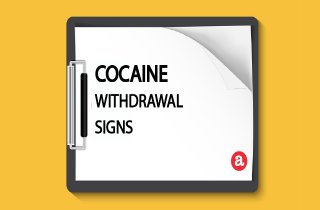Cocaine is a highly addictive drug. While not every user will develop physical dependency on cocaine, even one-time use can provoke symptoms fatigue or depression related to brain chemistry. So what happens during cocaine withdrawal and how can symptoms be treated? We take a look here. Then, we invite your questions about what helps cocaine withdrawal at the end. We try to respond to all legitimate questions with a personal and prompt reply.
Signs of cocaine withdrawal
Cocaine produces psychoactive effects primarily by acting on the brain’s limbic system, a set of interconnected regions that regulate pleasure and motivation. When you take cocaine, a buildup of the neurochemical dopamine triggers short term euphoria. But with repeated exposure, the brain starts to adapt, and the reward pathway becomes less sensitive to natural reinforcers and to the drug itself. Tolerance to cocaine may develop (needing higher doses and/or more frequent use of cocaine for initial effect) as well as drug dependence. As users become more sensitive to cocaine’s anxiety producing, convulsant, and toxic effects, the risk of adverse psychological or physiological effects increases. So what happens in the cocaine detox timeline when users STOP taking cocaine?
First signs of cocaine withdrawal
Stimulant withdrawal, which occurs following cessation of chronic cocaine or amphetamine use, can produce a wide range of dysphoria related symptoms. These can include:
1. A crash. Following binge use, individuals may initially experience a “crash” period, which is characterized by symptoms of depression, anxiety, agitation and intense drug craving.
2. Depression. During the withdrawal phase, individuals may experience fatigue, a loss of physical and mental energy, and decreased interest in the surrounding environment.
Early signs of cocaine withdrawal
Some people complain of difficulties in short-term memory during cocaine withdrawal, such as alcoholics experience after detoxification. Another problem is feelings of anhedonia or lack of pleasure in life; a cocaine user can experience depression or other symptoms of a mood disorder that can persist beyond the period of acute detoxification.
Late signs of cocaine withdrawal
During the late withdrawal phase, individuals may experience brief periods of intense drug craving, such that objects and people in the addicted person’s life can become a conditioned trigger for craving and relapse. Some people, particularly those who have used cocaine in large amounts over long periods of time, will experience long-lasting changes in mood and memory. These changes may continue for days or weeks after the cocaine use has been stopped. Anxiety and/or depression, often accompanied by difficulty in sleeping, are some of the signs that may occur. Other patients experience panic attacks that persist for varying time periods after episodes of cocaine use.
Signs and symptoms of cocaine withdrawal treatment
Currently, there are no FDA-approved medications to treat cocaine detox symptoms during withdrawal. Several medications marketed for other diseases (e.g., vigabatrin, modafinil, tiagabine, disulfiram, and topiramate) have been reported to reduce cocaine use in controlled clinical trials. However, people who experience cocaine withdrawal usually exhibit symptoms for a relatively short time. Awareness of the development of post acute or protracted withdrawal symptoms can help prevent further harm. The danger is that the cocaine user may will interpret the symptoms as being fundamental problems with himself or herself that can be reversed or corrected by self-administration of cocaine or other drugs.
Withdrawal from cocaine abuse requires a comprehensive assessment of a person’s psychological, medical, forensic and drug use history. Moreover, because information obtained from chemically dependent persons may be incomplete of unreliable, it is important that patients receive a thorough physical examination, including blood and supervised urine samples for analysis. At least half of all people addicted to cocaine also have a mental disorder (particularly depression and attention-deficit disorder). These conditions should be suspected and treated. When diagnosed and treated, relapse rates are dramatically reduced. All prescription drug use should be monitored carefully in patients who abuse substances.
People who go through cocaine withdrawal will often use alcohol, sedatives, hypnotics, or anti-anxiety medications such as diazepam (Valium) or lorazepam (Ativan)to treat their symptoms. Use of these drugs is not recommended because it simply shifts addiction from one substance to another.
Questions about cocaine withdrawal signs
Do you still have questions about the signs of cocaine withdrawal? Please contact us below. We’ll do our best to respond to your questions personally and promptly.









Related Posts